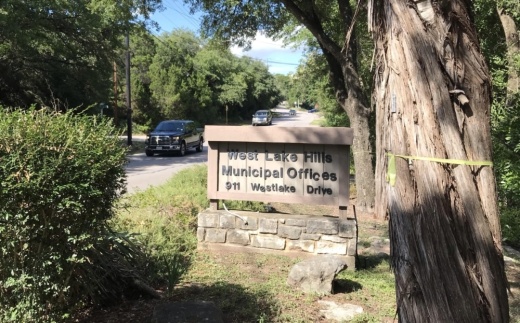In May 2020, West Lake Hills residents were set to vote on the first bond election since the city’s incorporation in 1953—then the COVID-19 pandemic arrived and spurred a wave of uncertainty for both residents and municipalities.
Following more than four years of planning, council voted to cancel the $22 million bond focused on addressing the city’s critical infrastructure needs. The deadline for calling a November 2021 election is set for August, and the city is considering the future of the much-anticipated bond.
Prior to its cancellation, the bond package encompassed two propositions. Proposition A totaled $12 million and was dedicated to the construction of a combined City Hall and police building, and Proposition B included a list of road and drainage projects.
Not only has the cost of those projects grown since July, but so has the need, according to a statement from Mayor Linda Anthony during a June 23 council meeting. Anthony estimated the total bond package would cost $25 million today.
“Nothing is getting less expensive. Meanwhile, our needs are still there. ... Winter and spring have not been kind to the roads,” Anthony said, specifically referring to the deterioration of Westlake Drive and Redbud Trail.
If approved, the bond package could see additional changes to the original plan. Anthony discussed the possibility of removing drainage and roadways repairs on Terrace Mountain Drive and Camp Craft Road from the list.
Camp Craft Road—one of the most expensive projects under consideration—has seen roughly $500,000 in repairs funded by the city’s budget, and Anthony said it’s difficult to justify spending more city dollars. As a result, the city will explore state or federal funding options through the Federal Emergency Management Agency.
Repairs on Terrace Mountain Drive would also include roadway and drainage improvements; however, Anthony told council those projects could be broken down into phases and funded out of operating expenses.
These long-time infrastructure issues have not been addressed due to a lack of city funding. Anthony said this is, in part, a result of a low city tax rate of $0.07 per $100 of valuation for fiscal year 2020-21.
“We simply can’t make meaningful improvements to the city infrastructure with that. We have to issue debt to do these fixes.”
Since 1995, the city has also imposed an additional one-half of one percent sales and use tax for the purpose of reducing the property tax rate for residents.
Anthony proposed asking residents if they are willing to give up that rebate. If approved by a public vote, those funds could create a dedicated stream of revenue for roadway improvements and would allow the city to establish long-term plans for repairs.
Council member Gordon Butler previously served on the city’s bond advisory committee and said he is in support of pursuing a November bond election. Butler’s opinion was echoed by Council Member Beth South, among others.
Moving forward, city staff will provide more details regarding the possible bond, including a list of projects and tax rate scenarios. Council will need to call the bond election by Aug. 16 in order for it to appear on the November ballot.





